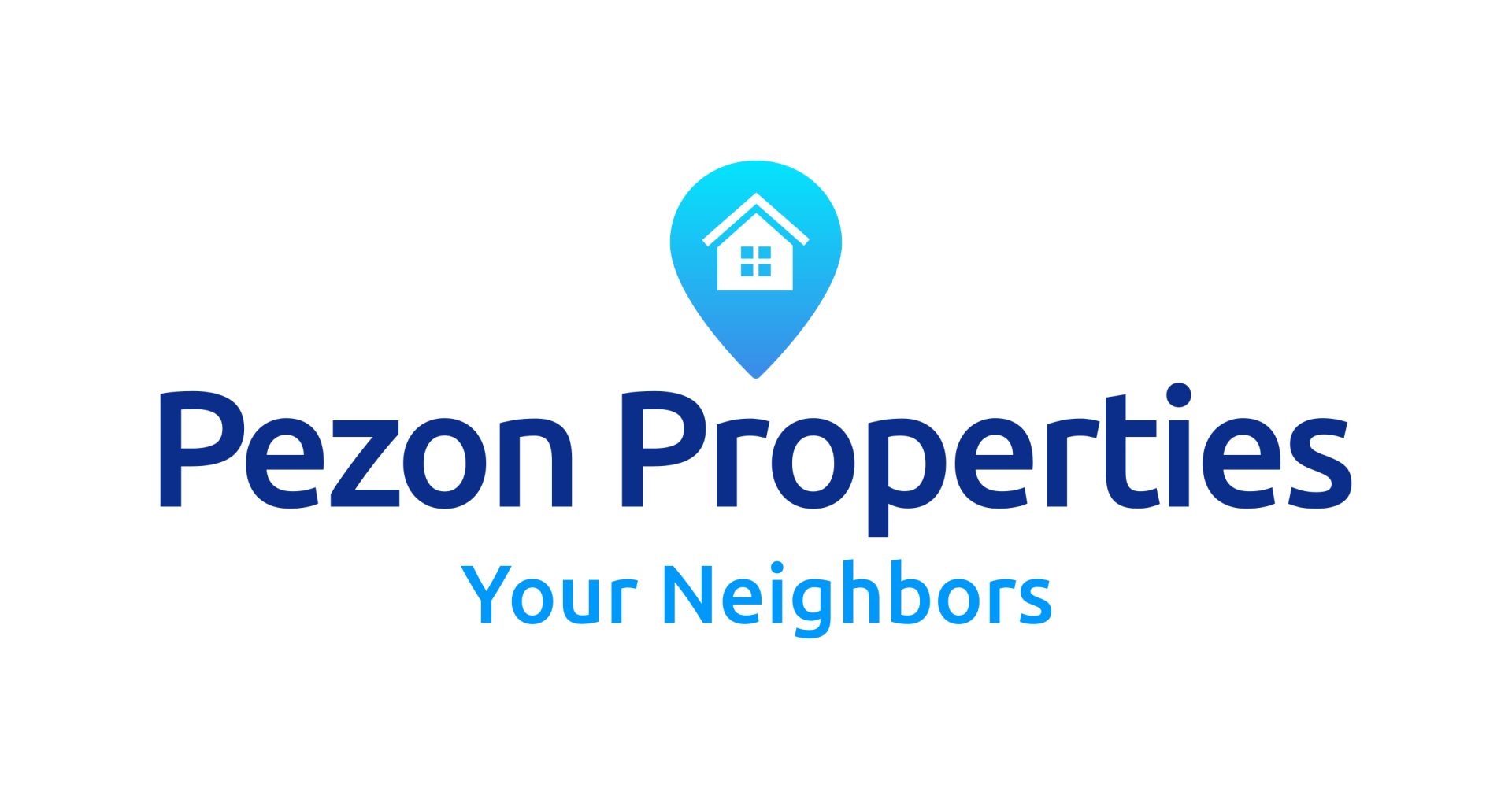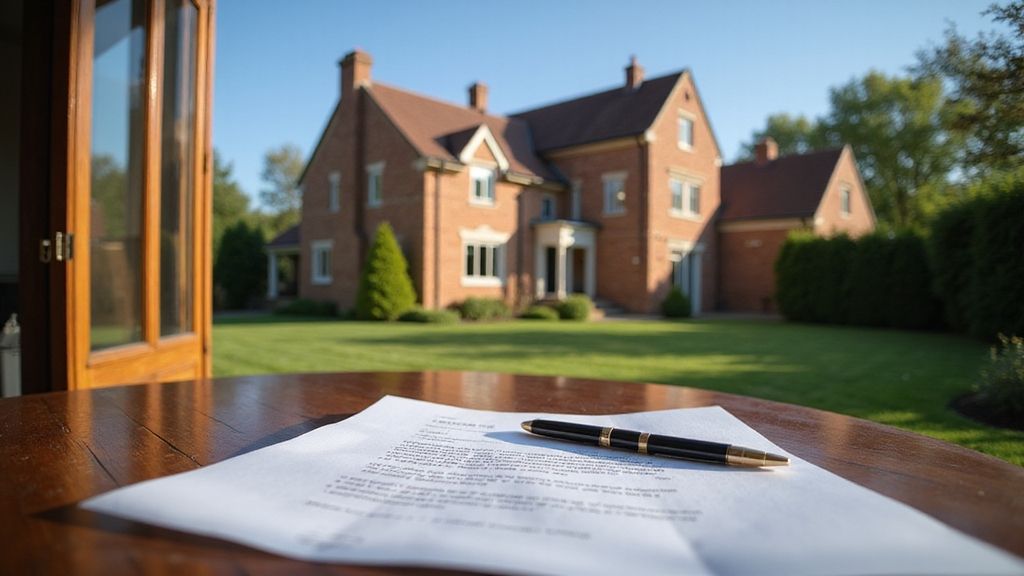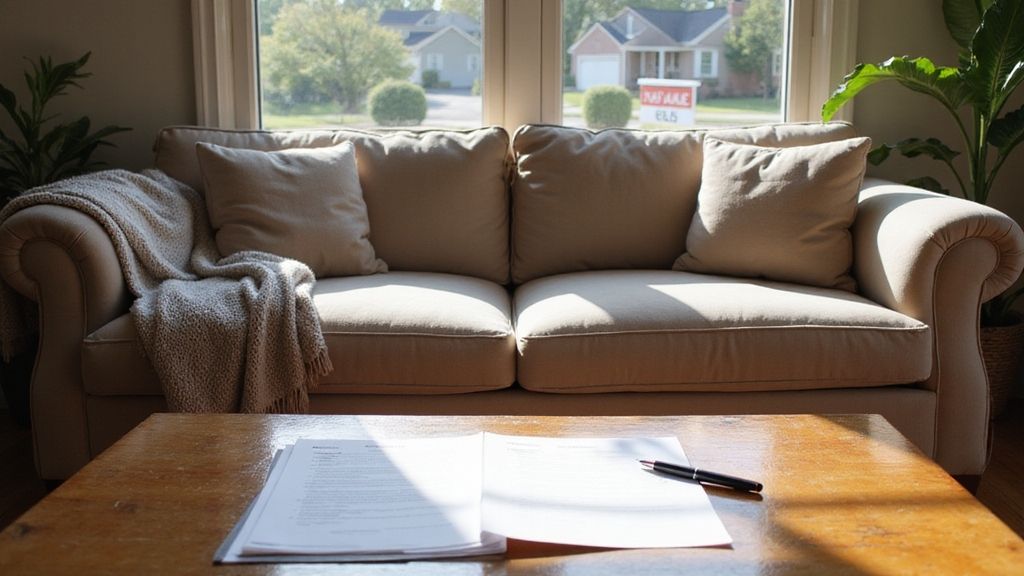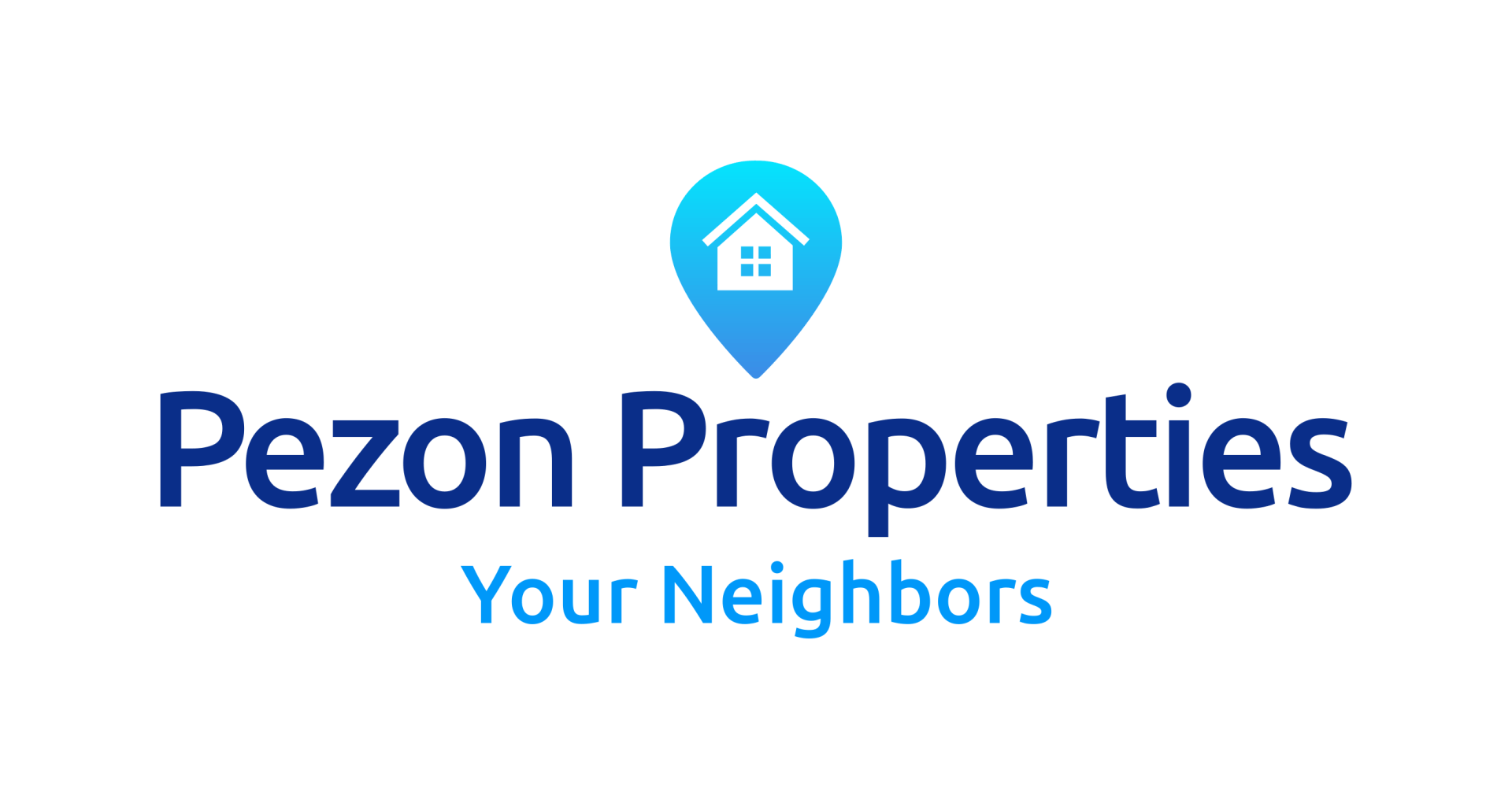How Much Do You Lose When You Sell Your House for Cash?

An increasing number of buyers are making cash offers on properties, a trend reshaping the real estate market. According to the National Association of Realtors (NAR), 32% of all home purchases in January 2024 were made with cash.
This marked a significant rise in cash home purchases, surpassing the record-high percentages of cash transactions in 2014. Experts point to factors like competitive housing markets, quicker transaction times, and fewer contingencies driving this trend.
This growing preference for cash transactions also has implications for sellers. Many wonder, “How much do you lose when you sell your house for cash?” The answer varies based on factors such as your asking price, the condition of your property, and the type of buyers you’re negotiating with. Cash buyers may expect discounts in exchange for speed and convenience, but the absence of financing contingencies can lead to smoother, faster sales.
Understanding the rise of cash buyers and its impact on the market can help buyers and sellers navigate this trend. Learn more about selling your house for cash and leveraging this shift.
What is a Cash Sale?
A cash sale happens when a buyer purchases your home without needing a mortgage or other financing. They may use proceeds from a previous home sale or tap into personal savings to fund the purchase.

The most significant advantage of selling your home for cash is the elimination of delays and uncertainties tied to financing. You won’t have to wait for the buyer to secure a loan, nor will you risk the deal falling through due to financing issues. For this reason, many sellers prefer cash offers—they allow for a faster, smoother closing process.
Cash buyers can come from various sources. Market your home traditionally and receive cash offers from individual buyers. Alternatively, cash investors may approach you with an offer before your home even hits the market.
However, the source of a cash offer can impact whether you’re maximizing the value of your sale. This article will explore the different types of cash offers, helping you understand why some may result in a financial loss while others don’t.
Cash Sale vs. Traditional Sale: What’s the Difference?
Before diving into selling a house for cash, it’s helpful to understand how a traditional real estate sale works. In a conventional sale, your real estate agent will list your property on the multiple listing service (MLS). The listing price is typically based on the property’s fair market value, which is determined by its condition, location, and comparable home sales in the area.
Potential buyers will browse listings and tour the house, and if it meets their needs, they’ll make an offer. Once you accept an offer, the buyer will begin working with their lender to secure a mortgage. In most cases, buyers get pre-approved for a loan before making an offer, so they know their chances of obtaining financing are high. Pre-approval also makes their offer more appealing to sellers by reducing the risk of delays or financing issues later in the process.
However, obtaining a mortgage takes time. Depending on the lender, it typically takes about 45 days on average to complete the process. Many lenders recommend that buyers allow 30 to 60 days for the mortgage application process, which includes credit checks, income verification, and property appraisals.
During this time, the seller remains responsible for the property and must coordinate a closing date that aligns with the mortgage timeline. This can sometimes create delays or complications if the buyer’s financing falls through or additional documentation is required.
On the other hand, cash sales eliminate the need for a mortgage. These transactions also bypass the MLS listing process, especially if the buyer is a real estate investor or someone explicitly looking for cash-only deals. In a cash sale, buyers—often real estate investors or individuals with immediate funds—reach out directly to homeowners and make cash offers on their properties. This direct approach can save time, as there’s no need for open houses, staging, or prolonged negotiations.
Since cash buyers don’t rely on lenders, the timeline for closing is much faster. Once an offer is accepted, the deal can typically close shortly after the home inspection and appraisal process, sometimes in as little as a week or two. This makes cash sales particularly appealing for sellers who need to move quickly, such as those facing financial difficulties, relocating for work, or managing an inherited property. Cash buyers also often purchase homes “as-is,” meaning sellers don’t need to invest time or money into making repairs or upgrades before the sale.
In summary, traditional sales involve a more protracted process with mortgage approvals, negotiations, and potential delays. Still, they may help sellers achieve a higher price if they have time to wait. Cash sales, by contrast, offer speed, simplicity, and convenience, making them an ideal option for sellers prioritizing a quick, hassle-free transaction. Understanding the differences can help you decide which method aligns better with your goals and circumstances.
Who Receives Cash Offers?
In a hot housing market, almost any homeowner will likely receive offers from cash buyers. You might not even be considering moving when you’re contacted by potential investors looking to make a deal. Many investors aim to act quickly, swooping in to purchase homes before traditional buyers outbid them. Cash offers are often presented as fast and hassle-free, making them appealing to some homeowners, but these offers are not always as beneficial as they may seem.
Here are a few primary targets of real estate investors who are likely to make cash offers on properties:
- People who own distressed homes: Investors often seek out people living in worn-down, damaged, or even condemned houses. These properties are typically purchased at low prices to repair and flip them for a profit. Sometimes, the homeowner may not have the resources to bring the property up to market value, making a cash offer seem like an easy way out.
- Owners facing foreclosure: Cash buyers offering a quick sale may contact Families who risk losing their homes to foreclosure. This can appeal to homeowners who want to avoid falling deeper into debt or damaging their credit scores. While these offers may provide a way out, they often come at the cost of selling the home for less than its actual value.
- Beneficiaries who recently inherited houses: Inheriting a home can bring financial and emotional challenges, especially for heirs who may not want to be responsible for maintaining or managing the property. Cash buyers often target beneficiaries with the promise of a quick, hassle-free sale, encouraging them to sell the house for cash instead of going through the traditional listing process.
- People who experienced changes in their home values: Homeowners living in areas affected by climate change, natural disasters, or significant infrastructure developments—like the construction of interstates or airports—may see their property values drop. Cash buyers might approach these owners with offers, banking on their frustration or urgency to sell.
People who make cash offers on homes often target vulnerable individuals who need to sell their properties quickly or feel they have no other viable options. These investors typically make lowball offers, capitalizing on the homeowner’s circumstances to maximize their profit. While the process may seem convenient, homeowners must weigh their options carefully and consider whether a cash offer aligns with their financial goals.
Types of Cash Buyers
Not all cash buyers are the same, and understanding the different types of people and companies you might encounter can help you assess whether an offer is fair and whether you’ll be treated reasonably during the process.
Here’s a closer look at the various cash buyers you might work with:
- Traditional cash buyers: These individuals have enough financial resources to make property offers without relying on mortgage loans. They typically look for homes they plan to live in or use as personal assets. Traditional cash buyers are often the most likely to offer a fair market value bid since they are not looking to flip or monetize the property immediately.
- Home flippers: Home flippers are investors who purchase distressed properties at low prices, renovate them, and then sell them at a higher price for a profit. They could be individuals or companies that specialize in flipping properties. While they often make quick offers, their bids are usually lower to allow room for renovation costs and profits. These buyers frequently target homes in need of significant repairs.
- Individual investors: People looking to expand their investment portfolios through real estate. They might purchase your home as a second property, a vacation home, or an income-generating rental property. These buyers offer competitive prices, especially if the property aligns with their long-term investment strategies, and they are more flexible in their terms compared to larger firms.
- Investor firms: Investor firms are large organizations that focus on acquiring homes to generate rental income. These companies aim to build extensive portfolios of rental properties and are less likely to resell the house immediately. Because they focus on long-term revenue from rentals, investor firms may offer fair market prices, especially for properties in good rental markets.
- Cash-for-Homes companies: Also known as wholesale buyers, these companies purchase distressed homes, often at below-market prices, and then resell them to home flippers or other investors. They specialize in quick transactions and are primarily interested in turning a profit. As a result, their offers are typically low, designed to leave room for resale margins.
- iBuyers: iBuyers, or instant buyers, are online companies that use algorithms to make quick home offers. These companies promise a fast and convenient selling process, often closing deals within a week. However, they are known for making lowball offers to maximize their profits when reselling the property. Additionally, iBuyers usually charge steep fees, which can further reduce the amount you walk away with after the sale.
While selling your home to an iBuyer can provide unmatched speed and convenience, it often comes at a lower sale price. On the other hand, working with a private investor or a traditional cash buyer might increase your chances of receiving a fair market value offer while potentially saving on closing costs and other expenses. Each type of cash buyer has its benefits and drawbacks, so carefully evaluating your options can help you make the best decision.
How Much Do You Lose When You Sell Your House for Cash?
Accepting a cash offer for your home doesn’t necessarily lose money. In some cases, going through the traditional listing process can result in bids at or above market value, with the added benefit of an all-cash payment that speeds up the closing process. Cash offers can be particularly appealing if you want a quick, hassle-free sale without contingencies or delays.

However, if you work with house flippers or cash-for-homes companies, you’re likelier to leave money on the table. These businesses purchase properties significantly below market value, make necessary repairs or renovations, and sell them for a substantial profit. It’s in their best interest to persuade you to accept the lowest price possible for your home, as this maximizes their returns. This approach is prevalent when sellers hurry to sell or face financial difficulties, as these buyers capitalize on urgency.
Definitions of a “lowball offer” can vary depending on perspective. Some people consider a lowball offer to be any bid 25% or more below the asking price, while others define it as any offer 10% or more below the property’s market value. In either case, these offers often fail to reflect the home’s actual worth, especially if it’s in good condition or in a competitive market.
The first step to understanding your home’s value is to get a professional appraisal or have your real estate agent conduct a comparative market analysis (CMA). These tools will give you a clear picture of your property’s current market value based on location, condition, and recent sales of similar properties in your area.
Once you know your home’s value, you can compare it to offers from house flippers or real estate investor companies. The difference between their offers and your home’s appraised value will show you how much money you might lose by selling to these buyers. For example, if your home is appraised at $300,000 and an investor offers $240,000, you would lose up to $60,000 by accepting the cash offer. Over time, these losses can add up, mainly if you sell a property in a hot market where homes frequently sell above the asking price.
While selling for cash can provide speed and convenience, it’s important to weigh that against the potential financial loss. If you’re considering a cash offer, take the time to evaluate your options carefully. Speaking with real estate professionals and exploring multiple offers can help you make an informed decision and get the most value for your home.
Pros of Selling Your House for Cash
There are several benefits to selling your house for cash, especially if you can secure an offer close to your home’s fair market value. Many homeowners actively seek out cash buyers throughout the selling process for the convenience and speed they offer.
Here are a few compelling reasons to consider this option:
- Faster closing periods: One of the most significant advantages of selling for cash is the speed of the process. Some cash buyers are prepared to close on your property within as little as seven days, which is ideal for homeowners who need to move quickly or free up funds fast. Even if the closing period takes longer, it is usually much quicker than the timeline for buyers who require mortgage approval. With cash sales, you avoid delays with loan underwriting and other lender processes.
- Fewer contingencies: Cash buyers typically purchase homes as-is, meaning you don’t have to worry about making repairs or upgrades before selling. This is because many cash buyers, such as investors or home flippers, are willing to make repairs as part of their plans to renovate and resell the property. Reduced focus on contingencies can save sellers time, stress, and money.
- Reduced bureaucratic hurdles: Selling your home for cash eliminates the need to deal with lender-related obstacles. As a seller, you won’t have to worry about a buyer’s mortgage application being denied or delayed. This streamlined process helps ensure the sale goes through as planned, making the closing process much smoother and faster overall.
- Cost savings: While cash offers may sometimes be lower than traditional offers, you could save money in other ways. You may avoid paying real estate agent commissions or other fees associated with conventional listings when selling for cash. These savings, particularly on agent commissions, can add up significantly and help offset any potential gap between the cash offer and your desired sale price.
Consulting with a local real estate agent is still a good idea if you’re considering selling your home for cash. They can help you better understand your home’s value, explore all your listing options, and guide you through the nuances of cash transactions. A local expert can also point out additional benefits of cash offers and assist you in navigating the investor bidding process to ensure you make an informed decision.
Cons of Selling Your House for Cash
While the prospect of selling your home for cash can seem appealing, weighing the potential drawbacks before proceeding is essential. For many homeowners, the convenience of a cash sale comes at a cost.
Here are some concerns you should consider:
- You will receive lowball offers: The primary downside of selling for cash is the likelihood of receiving offers well below your home’s market value. Most cash buyers, such as investors and home-flipping companies, operate to turn a profit. They often submit lowball offers to achieve this, leaving sellers with less money than they’d get through a traditional sale.
- You won’t be able to counter the offer: Cash buyers often present a single, take-it-or-leave-it offer without room for negotiation. This means that even if you believe your home is worth more, you won’t have the opportunity to counter with a higher price. For sellers who value flexibility, this aspect of cash sales can be a significant drawback.
- There won’t be any competitive bidding: One of the advantages of listing your home on the Multiple Listing Service (MLS) is the potential for competitive bidding. When multiple buyers are interested in your property, they may submit higher offers to outbid one another, ultimately driving up the final sale price. In a cash sale, however, the absence of competition means you’re unlikely to see similar outcomes.
- You may have to pay unexpected fees: While selling for cash can save you on agent commissions, some cash-for-homes companies charge additional fees that eat into your profits. For example, some iBuyers or investors require sellers to cover administrative fees or the cost of repairs after the sale is finalized. These added expenses can further reduce your earnings.
Ultimately, deciding whether to sell your house for cash depends on how much money you will leave in exchange for convenience and a faster process. While selling your home traditionally may take more time and effort, it often leads to a higher sale price and more significant overall profit. Carefully evaluate your priorities and financial needs before making your choice.
Contact a trusted real estate agent for guidance if you’re unsure about the best route. They can help you compare your options, provide insights into your local market, and ensure you decide to align with your goals.
Should You Sell Your House to a Cash Buyer?
Deciding to sell your house to a cash buyer depends on your unique circumstances, so there’s no one-size-fits-all answer. While cash sales can be quick and straightforward, they may not always be the best option for everyone. To help you evaluate your situation, here are some key questions you can ask yourself before deciding if selling your house as-is to a cash buyer is correct.
- Do you have the ability to make repairs?
Significant repairs and home upgrades can be expensive and time-consuming, and not every homeowner has the resources or the time to fix up a property before listing it on the traditional market. If your home requires significant work and you lack the means to handle it, selling your house as-is may save you a lot of stress. Cash buyers are often willing to purchase properties in any condition, which can eliminate the hassle of making costly improvements and dealing with contractors.
- How quickly do you need to move?
If you’re in a situation where you need to sell your house quickly, such as facing foreclosure, going through a divorce, or relocating for a new job, working with cash buyers might be the fastest option. Selling to a cash buyer often bypasses the lengthy process of staging, marketing, and waiting for offers. On the other hand, if your move isn’t urgent and you have time to wait for the right offer, consider listing your home on the traditional market, which could result in a higher sale price. If you’re relocating for work, partnering with a real estate company might provide additional support and options.
- How much are you willing to lose by selling a house?
Selling your house to a cash buyer often means accepting an offer below market value. Cash buyers prioritize convenience and speed over competitive pricing, so it’s essential to consider the financial trade-off. Before committing to a cash sale, determine the bare minimum you’re willing to accept for your home and weigh that against the benefits of a faster, simpler transaction. Ask yourself if the reduced price is worth avoiding the time, effort, and expenses of a traditional sale.
- Would a traditional listing inconvenience you?
Selling a house on the traditional market comes with its own set of challenges. It typically involves home showings, open houses, and waiting for offers, which can disrupt your daily routine. If you’re uncomfortable with frequent scheduling or the uncertainty of waiting for the right buyer, selling to a cash buyer might be more appealing. However, if you’re willing to endure the additional effort and time, a traditional listing could help you secure a higher offer.
It’s worth noting that you have some flexibility in your approach. For example, you can list your property on the MLS (Multiple Listing Service) to test the waters and see if you receive an offer you’re happy with. If the process is too long or overwhelming, you can always pivot and explore options with cash buyers. However, the reverse isn’t true—once you accept an offer from a cash buyer, you can’t backtrack and decide to list your home traditionally.
When deciding whether to sell your house to a cash buyer, consider your financial needs, timeline, and willingness to navigate the traditional real estate process. Understanding your priorities and weighing the pros and cons will help you make the best decision.
How Pezon Properties Can Help You Sell Your House for Cash
When you’re in a situation where you need to sell quickly—whether it’s because of financial strain, job relocation, or personal reasons—you might be tempted to sell your house for cash. One of the most reliable ways to navigate this process is to work with a cash home buyer like Pezon Properties.
Pezon Properties can help homeowners ready to sell their houses fast without the hassle of traditional sales methods. A cash offer for your house can be pretty appealing since you can avoid the long, often stressful process of listing your home on the market and waiting for offers. But what does the process look like when working with a company like Pezon Properties?
Why Choose Pezon Properties as Your Cash Home Buyer?
Choosing the right cash buyer is crucial to getting a fair deal. Pezon Properties stands out because it offer several benefits that make the process smoother and less stressful:
- Quick and Easy Process: Pezon Properties can offer cash within 24 to 48 hours. This is a significant advantage if you need to sell fast.
- No Repairs Needed: One of the main reasons homeowners choose to sell as-is is to avoid costly repairs. Pezon Properties buys homes in any condition, meaning you won’t have to spend money on repairs or updates.
- Fair Cash Offers: When you work with a reputable cash home buyer like Pezon Properties, you can expect a fair cash offer for your home based on your property’s market value and condition.
- Avoid Agent Fees and Commissions: Unlike a traditional sale with a real estate agent, you won’t have to pay commissions or closing costs. The offer you receive is what you’ll get at the end of the sale.
By choosing Pezon Properties, you can make the selling process much easier and faster without the usual hurdles of selling a home through an agent or listing on the open market.
How Can Pezon Properties Help You Get a Fair Offer?
The key to understanding how much you might lose when selling your house for cash lies in understanding the offer for your house. Pezon Properties takes the time to evaluate your home correctly, ensuring that its offer reflects its actual value. Here’s how they help:
- Fair Assessment: The team will assess your home’s condition, location, and comparable sale prices in your area to determine a fair offer.
- Transparent Communication: Pezon Properties believes in being open about its offer, so you’ll know exactly where it comes from and how it arrived at that number.
- No Hidden Fees: With Pezon Properties, the offer you receive is the amount you’ll receive—no surprises or hidden fees at closing.
Whether you’re looking to sell a house that needs significant repairs or a home for cash in excellent condition, Pezon Properties will work with you to ensure you get the best deal possible.
Get the Best Offer for Your House – Sell to Cash Home Buyers Like Pezon Properties
Selling your house to cash home buyers like Pezon Properties offers numerous benefits that traditional methods cannot match. Whether you’re facing financial difficulties, dealing with an inherited property, or simply looking for a quick and hassle-free sale, working with a reputable cash buyer is an excellent choice. With Pezon Properties, you can expect a fair and competitive offer based on the current market value of your property, eliminating the uncertainty and stress that often accompanies traditional real estate transactions.
The process is straightforward, saving you time and money that would otherwise be spent on repairs, agent commissions, or lengthy negotiations. Moreover, cash sales offer the added advantage of a fast closing process, often within just a few days. This can be a game-changer for homeowners looking to sell quickly for various reasons.
This solution works well for properties in Whitehall, Whitemarsh, Whitpain, Wilkes-Barre, and York Township.
By choosing Pezon Properties, you partner with professionals who prioritize your needs and offer a transparent, no-obligation offer. Say goodbye to the complexities of traditional selling and enjoy the peace of mind that comes with a swift, reliable cash sale. Don’t let your property sit on the market any longer—contact us today and take the first step toward securing the best offer for your home.
Give us a call anytime at 484-484-0971 or fill out this quick form to get started today!
Get A Fair Cash Offer On Your House

About the author
Mathew Pezon
Mathew Pezon is the founder and CEO of Pezon Properties, a cash home buying company located in Lehigh Valley, Pennsylvania. With several years of experience in the real estate industry, Mathew has become a specialist in helping homeowners sell their properties quickly and efficiently. He takes pride in providing a hassle-free, transparent, and fair home buying experience to his clients. Mathew is also an active member of his local community and is passionate about giving back. Through his company, he has contributed to various charities and causes.















